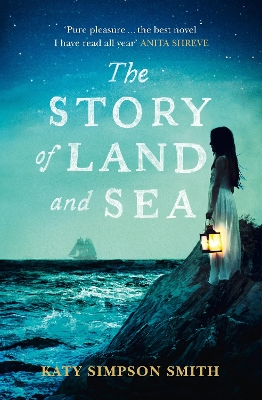Reviewed by meowstina on
I was interested in the historical and generational aspect of this novel, which starts off with Tabitha and John. There are three parts to this novel, with Helen’s life and past randomly taking up the middle section. John is still mourning the loss of his wife, who dies during childbirth, but he truly loves their daughter. The first part of the novel moves very quickly, with Tabitha becoming sick early on and John deciding to take her to sea soon after. He questions his motives about this, but Tab takes to the sea just as well as her father. Third person perspectives switch between Tabitha, John (who often reminisces about his married life with Helen), and Asa, Helen’s religious father.
I thought the second part of the novel would make up the meat of the story, and it does kind of, but not in the way I thought. I thought readers would get to see Helen and Moll’s friendship blossom, and that this friendship would be the basis of part two, but that’s not the case at all. Their relationship is an uneasy one from the start, and I’m not so sure I would call them friends. Their connection is there more to display inequality and the differences between races, as Helen grows up taking command and free to make her own choices, while Moll’s choices are made for her as she constantly works as a slave. Also, I was surprised to find that Helen’s not really that likeable. She’s stubborn and not very generous. This section also recounts Helen and John’s meeting, but unfortunately doesn’t go into after the marriage. In the first part John mentions their time on a ship after they get married, and I was interested to read more about that, but was left in the lurch.
The third section occurs after John takes Tabitha to sea, and includes everyone trying to find their way. Moll’s perspective is also added. It thus details more of Moll’s life and struggles, including her son Davy.
I feel like I’ve mostly just summarized the novel, but that’s because at the end of it all, I can’t really find a point to the story. It’s about love, loss, and racial inequality (thoughts and comments from characters are very accurate to the time period, which made me uncomfortable at times, so I had to keep reminding myself it’s just the book). In the end a strong conclusion doesn’t really seem apparent, though. Each of the characters’ stories are somewhat wrapped up, but what was the point of them experiencing these things? Just to display these themes and show that they exist? I don’t know if it’s me or the story that feels disconnected, but something felt unfinished after the book was done. Thought the writing is done well, as these books usually tend to be for me, I found the reading experience kind of dull. Maybe that’s the problem, though - this just isn’t my thing.
Reading updates
- Started reading
- 31 January, 2015: Finished reading
- 31 January, 2015: Reviewed
